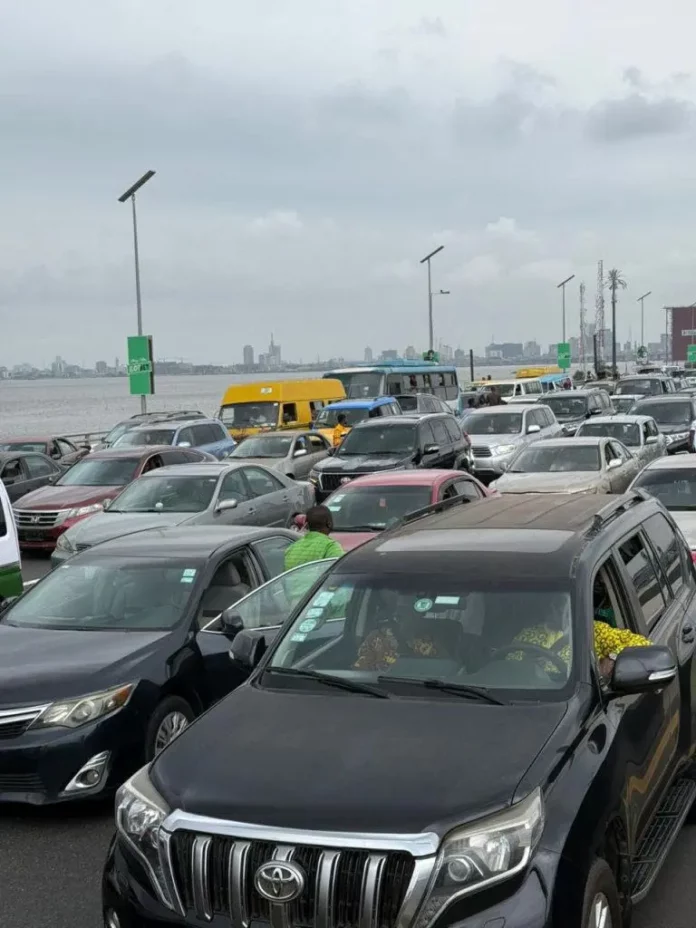Residents of Oworonshoki in Lagos on Monday blocked the Third Mainland Bridge in protest against the demolition of houses in their community by the Lagos State Government.
The protest, which started in the early hours, caused major traffic disruption on one of the busiest roads linking Lagos Island to the mainland. Hundreds of commuters and motorists were stranded for hours as protesters blocked a section of the bridge, demanding an immediate halt to the demolition exercise.
The residents accused the government of carrying out the demolitions without proper notice or compensation, leaving many families homeless and exposed.
According to eyewitnesses, the demolition began on Saturday, with bulldozers and heavily armed security agents moving into the Oworonshoki coastal area. The exercise targeted unapproved structures along the Lekki and Iyana Oworonshoki shorelines.
Affected residents say they were caught off guard, as many claimed they had not been served any eviction notice. Others said the notice period was too short to make alternative arrangements.
“They came in without warning. Before we knew what was happening, they started pulling down our houses. Where do they expect us to go now?” one distraught woman told reporters.
During the protest, angry residents carried placards and chanted slogans calling for justice and fair treatment. They accused the government of displacing poor families without providing any form of resettlement.
The protesters also confronted the Lagos State Commissioner of Police, Moshood Jimoh, when he arrived at the scene. They insisted that demolition work must stop immediately and demanded that the demolition equipment be withdrawn from the community.
“We won’t leave this bridge until they stop destroying our homes. We are human beings, not animals,” one protest leader said.
In response, security forces were deployed to the bridge to disperse the protesters and restore calm. By mid-afternoon, traffic movement resumed on the affected section of the bridge.
The Lagos State Government has defended the demolition exercise, stating that the structures were illegal and constructed without proper approval. Officials said the action is part of a broader plan to clear illegal developments along the state’s waterfronts and reduce the risk of flooding.
This is not the first-time demolitions in Lagos have sparked protests. In recent years, several waterfront communities—including Makoko, Tarkwa Bay, and Otodo Gbame have experienced similar forced evictions.

